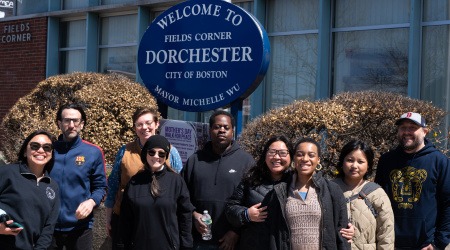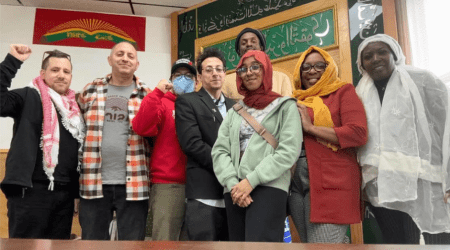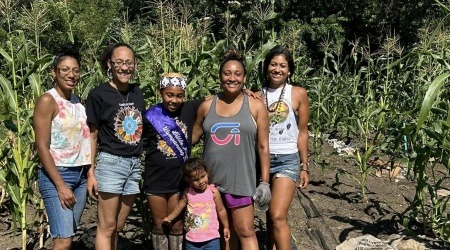What we mean by ‘Centering a Just Transition’
There is growing consensus that we need to take steps not just to stop the flow of carbon into the atmosphere or pollution into our waterways, but to transition our economy and society to be in line with principles of social and ecological wellbeing. This is the work of Just Transition.
We believe that true resilience and wellbeing is built from the bottom-up. A Just Transition will, therefore, require the leadership and sustained engagement of organized communities. This means anchoring the principles of this transition in real community context and understanding of place.
How we see grassroots groups putting this into practice
Groups are working in intersectional and overlapping ways.
Groups are focused on addressing numerous and connected issues, not just one siloed concern. This may include environmental, economic, social and racial justice concerns. They are collaborating with historically non-traditional partners in their work in order to find where concerns and values are aligned to support a shared vision for their community.
Groups are pushing the definition of ‘environmental work’ to include issues like community policing, disability justice, housing rights, living wage or access to healthcare. Rather than looking to silo issues, there is an effort to find connections and interdependencies, as oppression in one of these systems will hold back the liberation of any other.
Groups are working in regenerative and relationship-based ways.
This work aims to counter the extractive relationships we have with the land and transactional relationships we have with each other. Groups are working to heal bodies and land, deepening community relationships across both. We see that groups are looking to protect and rebuild the health of the land and water - be it through regenerative agriculture practices, access to fresh produce and medicinals, or water quality testing- while also working to engage and build relationships within their human community.
These groups envision a community built on mutual respect and care for one another. There is often specific consideration given to reconnecting historically marginalized and oppressed groups, like Black, Indigenous, and People of Color communities who have been forcibly removed from or barred access to land and natural resources, to the land itself.
Groups are prioritizing community agency and self-determination.
Groups are determining for themselves what a path towards a just and healthy community would be - environmentally, socially, economically. Perspectives and lived experiences from community members play valid and important roles in moving towards a Just Transition. Top-down mandates will not make for effective change. Groups are activating place-based solutions that are informed by and tailored to the needs of the community to navigate the nuanced challenges laid out before them.
*The Grassroots Fund’s definition of a Just Transition has been adapted from the Climate Justice Alliance. You can read about their definition here.


